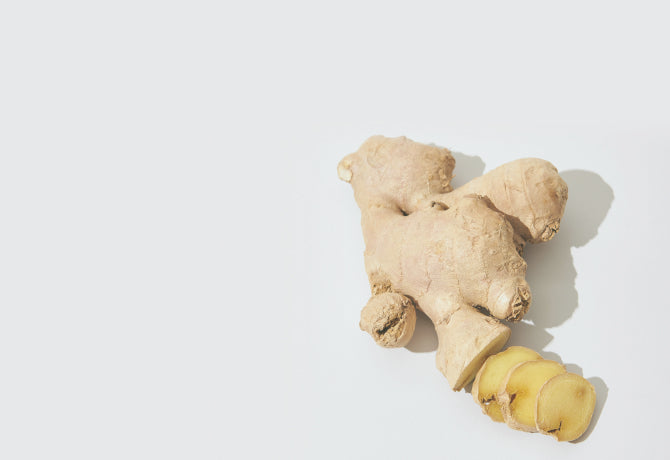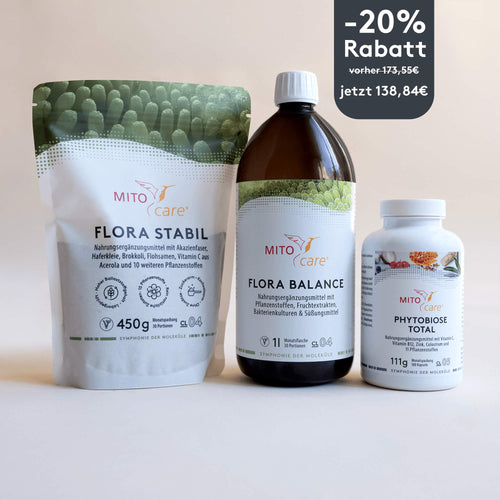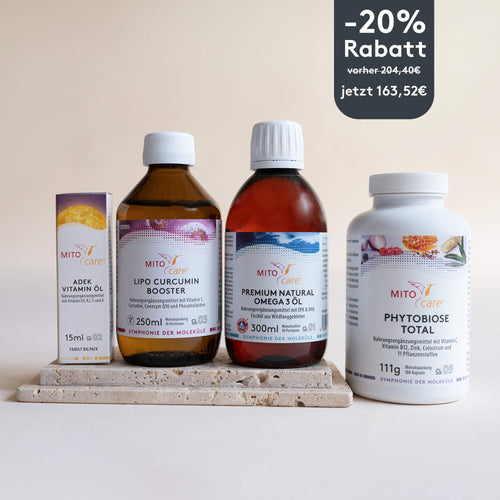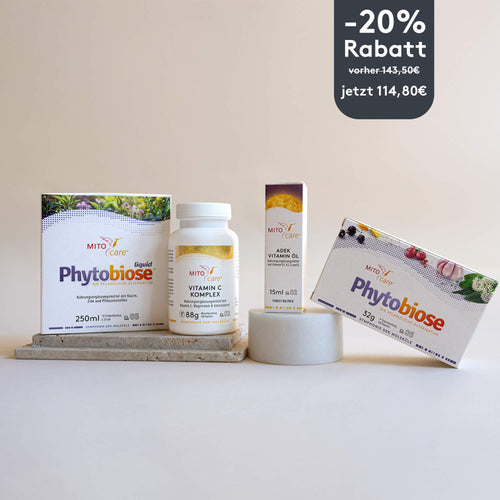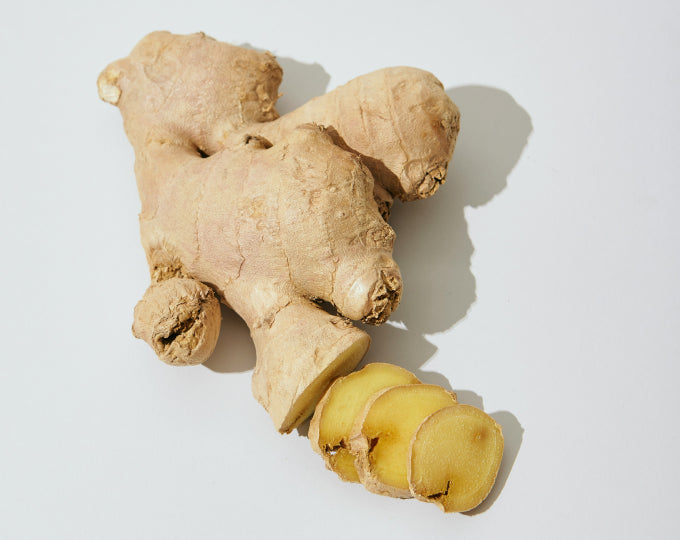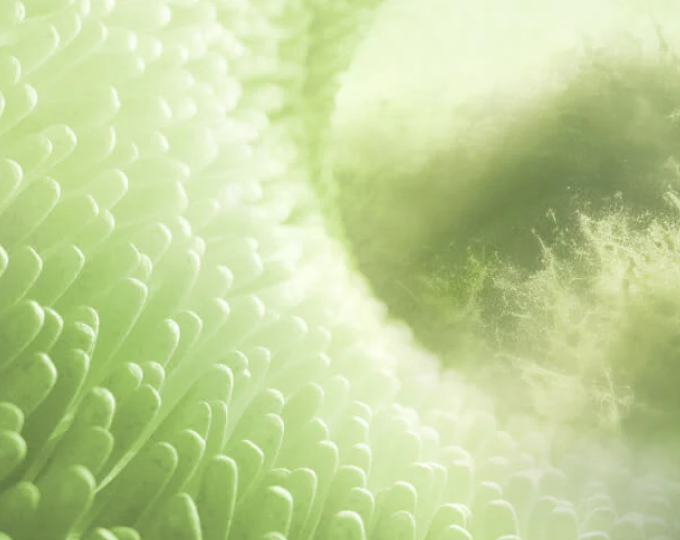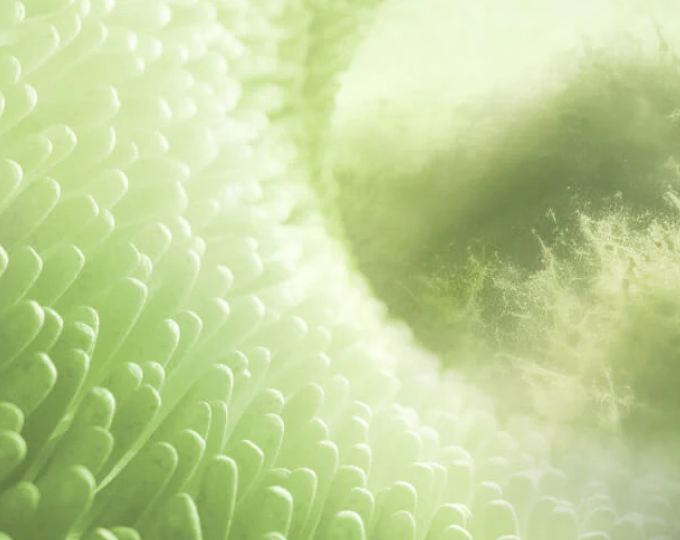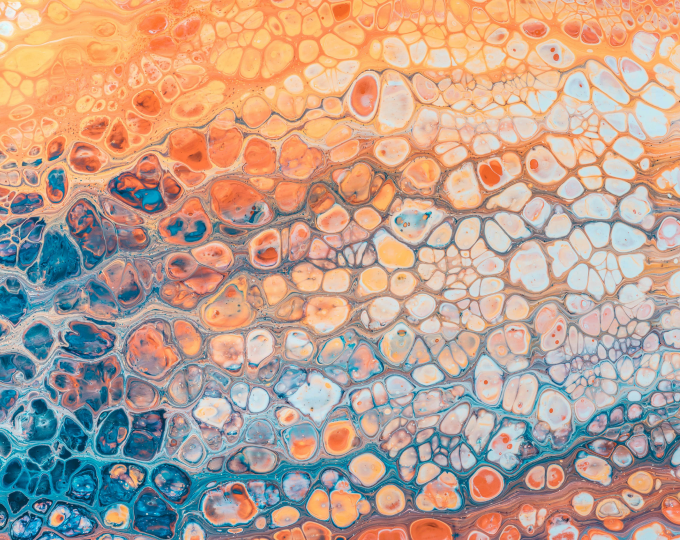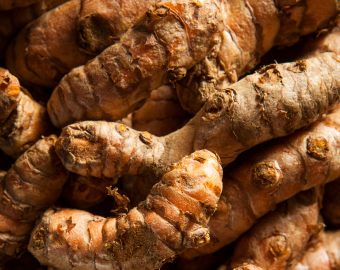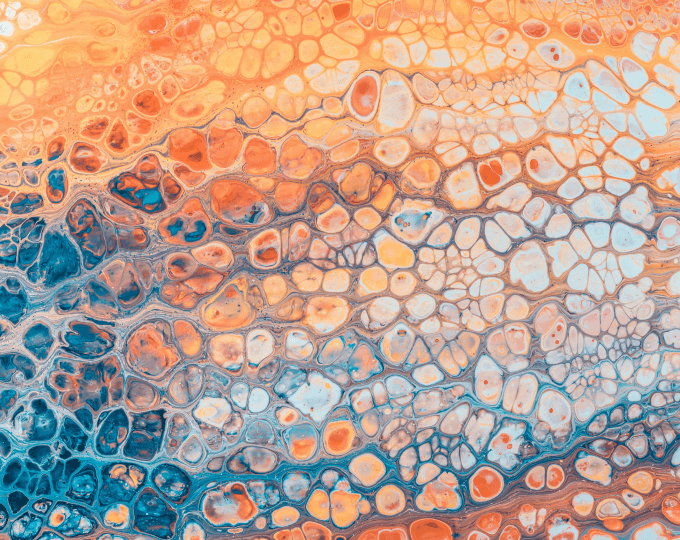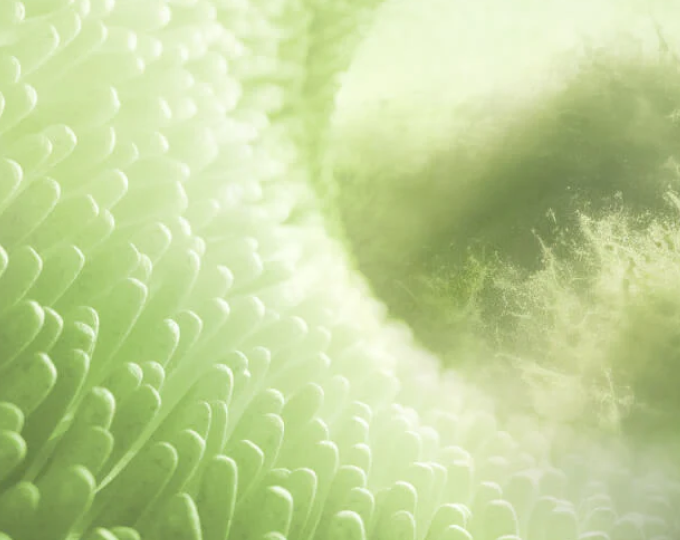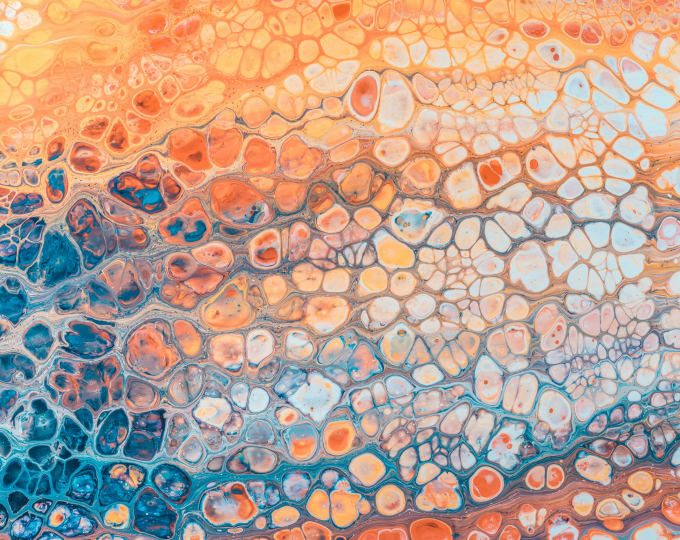Themen dieses Blogartikels:
Table of contents
- Autumn is cold season: This is how the wave of infections begins
- Our immune system: What role does the gut play?
- The intestinal mucosa: Your first immune barrier
- Plant power instead of pills: The power of nature for your immune system
- Medicinal plants and natural substances for strong immune systems
- Thyme – the classic remedy against mucus and germs
- Nasturtium – the herbal antibiotic alternative
- Moringa leaf – green, nutrient-rich, anti-inflammatory
- Colostrum – the natural immune booster
- Ling-Zhi (Reishi) – the medicinal mushroom with a long tradition
- Cranberry – Protection for the Bladder and Mucous Membranes
- Garlic – a natural broad-spectrum remedy for your immune system
- Onions – underrated immune helpers from the kitchen
- Propolis – the protective shield from the bee colony
- Bonus: Combinations often work better than individual substances
- What studies say about phytobiosis
- Giovanna demonstrates: Immune protection as an athlete
- Conclusion: Use September before the cold wave arrives
- Sources & Bibliography
Autumn is cold season: This is how the wave of infections begins
The summer holidays are coming to an end, the leaves on the trees are beginning to change color: There's no denying it, autumn is knocking on the door. The astronomical beginning of autumn this year is September 22nd, when the sun is directly over the equator. Because the duration of daylight and night are almost identical on this date, it is also referred to as the "equinox." After that, the days become increasingly shorter until the winter solstice. In autumn, we can also expect cooler temperatures, occasional foul weather, and the start of cold season.
According to the Robert Koch Institute (RKI), viruses that cause acute respiratory diseases spread more easily during the colder season. This is because people are now spending more time indoors again. At the same time, the cold means less ventilation, which allows pathogens to accumulate in the indoor air. The dry (heated) air also causes mucous membranes to dry out. This makes it easier for rhinoviruses, influenza viruses, coronaviruses, and other germs to penetrate the body and trigger respiratory infections such as the common cold.¹ That's the bad news.
The good news is: You can prepare yourself for the cold season. A healthy gut and a strong immune system will help you survive the cold season and stay fit. Under the motto "Stay strong through the fall," we've compiled many practical tips in the following article. We'll tell you how herbs and natural substances can activate your immune system now and how you can thereby reduce your risk of getting sick.
Our immune system: What role does the gut play?
The gut and the immune system—at first glance, that sounds like two completely different bodily functions. After all, the gut digests the food we eat, and the immune system fights pathogens, right? Not quite. Today, we know that about 70 to 80 percent of the immune system is located in the gut. The technical term for this is GALT (gut-associated lymphoid tissue). The GALT forms the largest collection of defense cells in the body.²
As a result, the intestinal mucosa acts as a barrier against pathogens. At the same time, it serves as a kind of "training ground" for immune cells. The microorganisms in the intestine, also known as the microbiome, help the immune system respond quickly to pathogens.³ If the intestinal mucosa is irritated, permeable, or weakened, the immune system can function less efficiently. You can read more about the connection between the microbiome and the immune system in this blog article.
The intestinal mucosa: your first immune barrier
Did you know? The intestine forms our body's largest interface with the outside world. The cells of the immune system, the intestinal mucosa, are located in the intestinal wall. Their job is to determine whether substances that have entered the gut are harmful or beneficial to the body. The immune cells of the intestinal mucosa must, for example, distinguish beneficial intestinal bacteria from dangerous pathogens – and decide whether the substances in question can be tolerated or must be actively combated.⁴ Therefore, the intestinal mucosa is, so to speak, the body's first immune barrier. An intact intestinal mucosa is essential for optimal protection against pathogenic germs, Candida, viruses, and parasites.
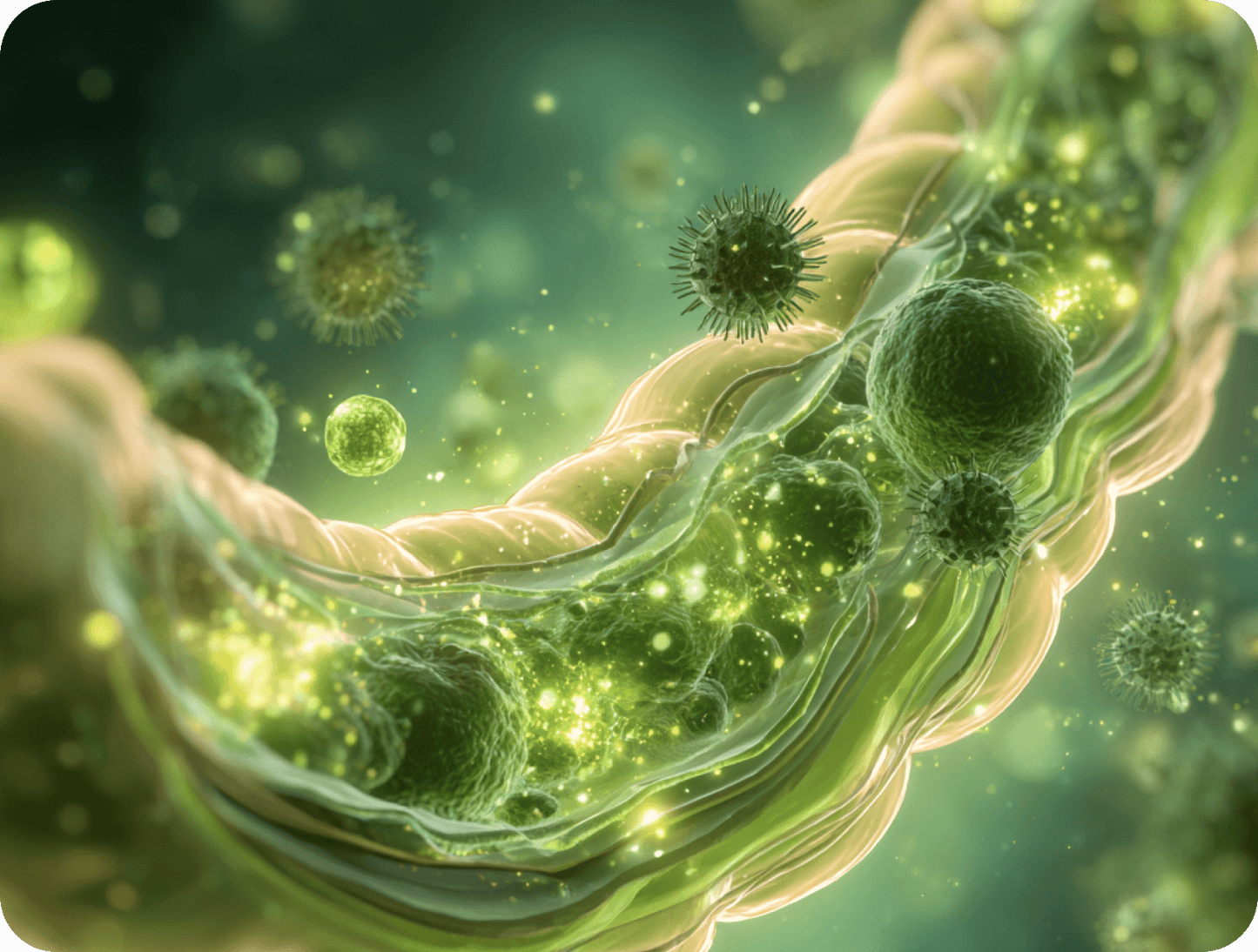

Advertisement
- Daily routine for the gut and immune system
- Flora Balance with 27 probiotic bacterial strains
- Flora Stabil with 30g fiber & 14 plant substances, for the intestinal flora and the microbiome
- Phytobiose Total with 11 other valuable plant substances for the immune system
- Developed with doctors & experts
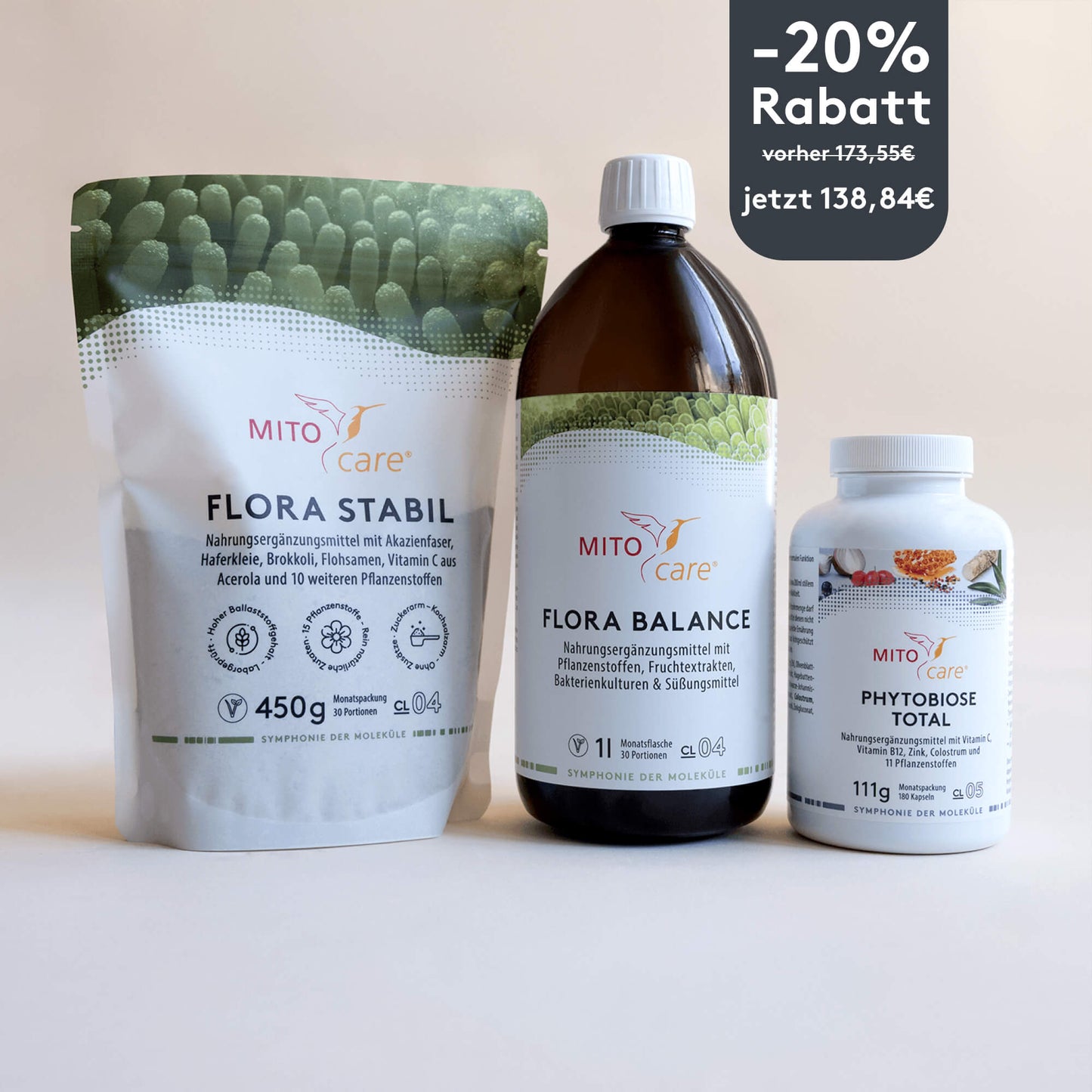

Plant power instead of pills: The power of nature for your immune system
The immune system acts as a kind of protective shield: It blocks attacks from viruses, bacteria, fungi, and other invaders, thus preventing us from becoming ill. If the body's defenses are functioning properly, we don't even notice that the organism is fighting germs. If the immune system is weakened, the protective shield develops "holes," so to speak—and pathogens have an easy time gaining ground. There are many reasons for a weakened immune system. For example, stress, inflammation in the body, or an unhealthy diet can cause the complex mechanisms involved in the immune response to malfunction.
If you want to strengthen your immune system for the upcoming fall season, you should pay attention to a healthy diet, sufficient exercise in the fresh air, and restful sleep . There are also various medicinal plants and natural substances that can have a positive effect on the immune system. Plant ingredients such as polyphenols and flavonoids can relieve symptoms in the event of illness, but also help prepare the body for external attacks in advance.⁵ Below, we will show you which medicinal plants and natural substances are traditionally used to support the immune system. They can make a valuable contribution to promoting your well-being and supporting the body's defenses – both in everyday life and during periods of particular stress.
Advertisement
- Immune Boost Package to support you during challenging times—especially in fall
- Phytobiose Total with 11 powerful plant substances such as nasturtium, cranberry, propolis, and more
- Vitamin C Complex—high dosage for extra protection
- Adek Vitamin Oil with the 4 fat-soluble vitamins A, D, E, and K
- Phytobiose Liquid with honey & lingzhi (Vitalpliz) as well as many other premium active ingredients
- Developed with doctors & experts
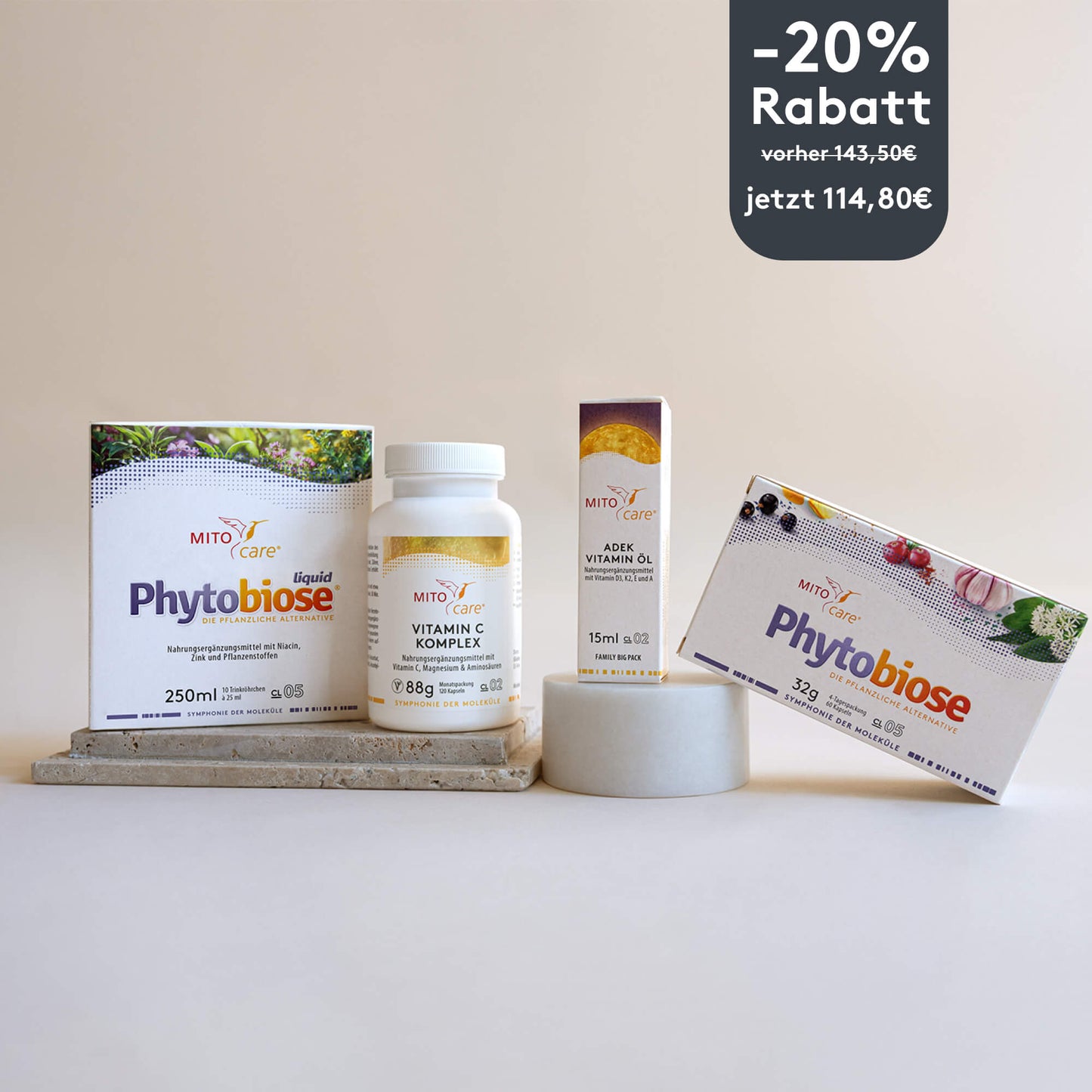

Medicinal plants and natural substances for strong immune systems
For thousands of years, people around the world have relied on various medicinal plants to cure acute illnesses and strengthen the body preventively. You should be familiar with the following herbs and natural substances if you want to harness the power of nature for your immune system and do something good for your health.
Thyme – the classic remedy against mucus and germs
Thyme has been used as a medicinal plant for over 4,000 years.⁶ The herb has a long-standing history of use for inflammation of the mouth and respiratory tract, acute colds, coughs, and bronchitis. The compounds in its essential oil, namely the phenols thymol and carvacrol, as well as the terpenes cineole, linalool, geraniol, and borneol, are particularly effective. Thyme essential oil possesses antimicrobial, antiseptic, potent antispasmodic, expectorant, and anti-inflammatory properties. Furthermore, the constituents of this medicinal herb have been shown to strengthen the immune system.⁷
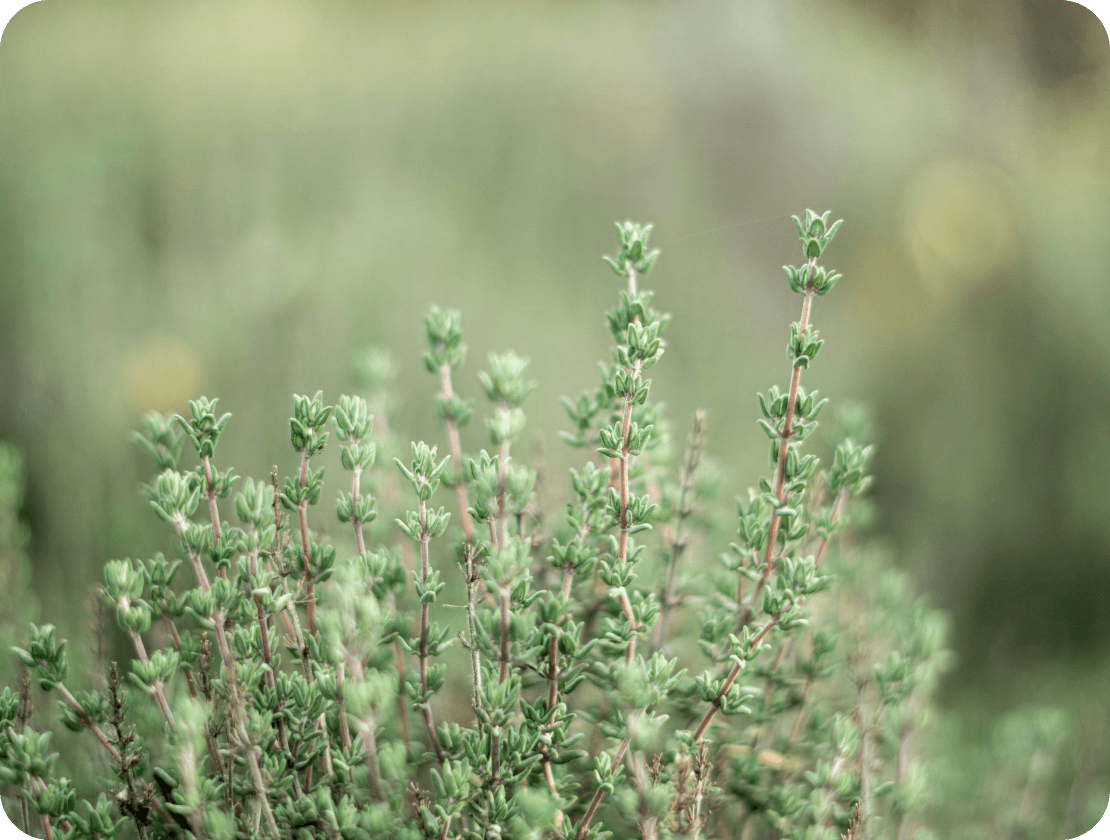

Thyme is also known for its protective and stimulating effects on the digestive tract: The medicinal plant can be used both to ward off pathogens in the intestines and to combat dysbiosis.⁸ Studies show that common thyme (Thymus vulgaris) strengthens the intestinal mucosa and inhibits the growth of pathogenic bacteria while promoting beneficial bacteria.⁹
Nasturtium – the herbal antibiotic alternative
Nasturtium (Tropaeolum majus) was already used in medieval monastic medicine. Its valuable mustard oils, found primarily in the flowers and leaves of the plant, possess antimicrobial properties. Because these chemical compounds act similarly to broad-spectrum antibiotics against many different bacteria, including staphylococci and pneumococci, nasturtium is often referred to as a "natural antibiotic."¹⁰ However, fungi such as Candida albicans and influenza viruses can also be combated by nasturtium compounds.
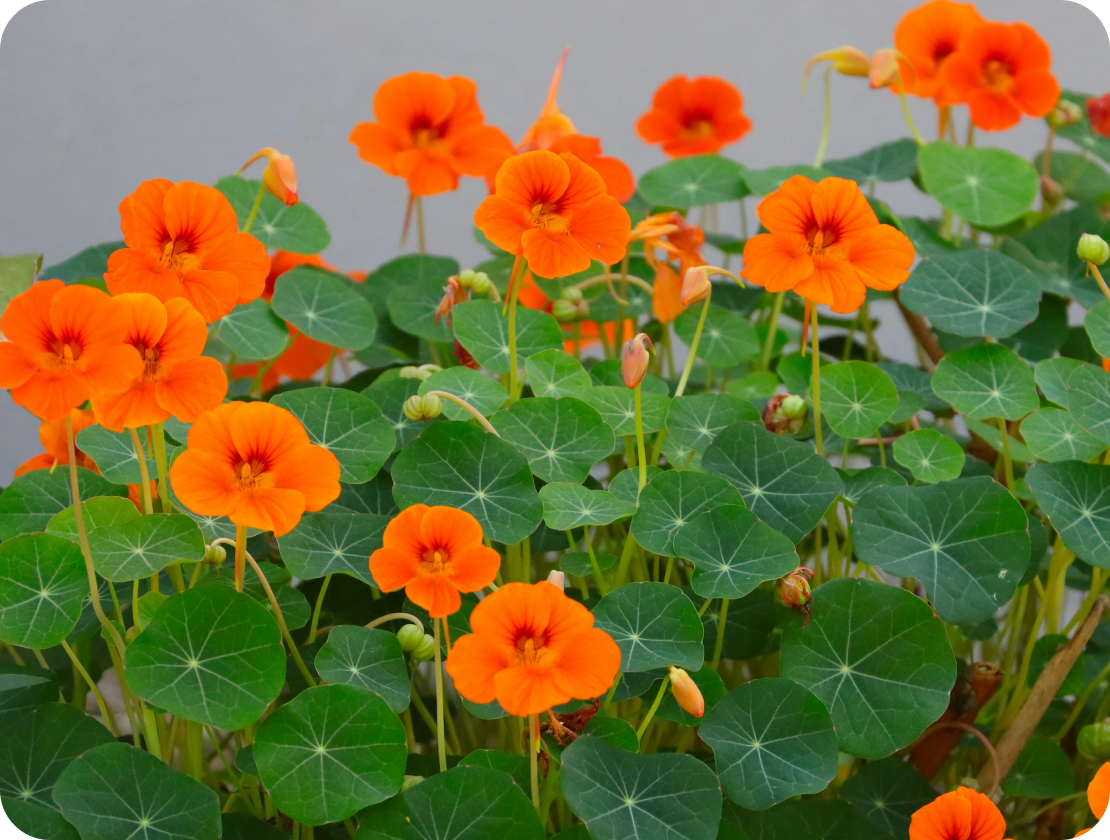

Advertisement
- 11 valuable plant substances such as nasturtium, cranberry, propolis & more
- Colostrum with natural immunoglobulins
- Supplemented with vitamin B12, vitamin C & zinc
- Herbal alternative for your immune system
- With Ling Zhi (Vitalpliz) & many other premium active ingredients
- Study-based complex, developed with doctors & experts

Good to know: Horseradish root also contains mustard oil glycosides, which makes this plant a "green antibiotic." In naturopathy, horseradish and nasturtium are often used in combination to treat colds and urinary tract infections.¹¹ Nasturtium can also be helpful in preventing respiratory and urinary tract infections.¹²
Moringa leaf – green, nutrient-rich, anti-inflammatory
Moringa oleifera is the Latin name for the Indian horseradish tree. The German name derives from the mustard oil glycosides, which, like those found in horseradish, are also found in this plant. But that's not all: Moringa oleifera is considered the "most nutrient-rich plant in the world" and is celebrated as a superfood. Moringa leaves are high in vitamin A and calcium, as well asvitamin C, vitamin D , vitamin E , and vitamin K , as well as the trace elements copper and zinc. They also contain the healthy fatty acids omega-3 , omega-6, and omega-9, as well as valuable secondary plant substances. The latter, especially chlorophyll, is responsible for the rich green color of the leaves.¹³


In Ayurvedic medicine, Moringa oleifera is valued as a "miracle tree," whose leaves, roots, and seeds are said to help against hundreds of different ailments. Scientific studies on rats and mice have already demonstrated the plant's immune-stimulating effects.¹⁴ Further animal studies have shown antimicrobial and anti-inflammatory effects.¹⁵ Due to its many nutrients, Moringa is used in complementary medicine and naturopathy, but also preventively, in the form of powder, capsules, and tea, to strengthen the immune system.¹⁶
Advertisement
- 13 valuable plant substances such as thyme, nasturtium, moringa leaf, cranberry & more
- Additionally with garlic & colostrum
- Supplemented with vitamin B12, vitamin C & zinc
- Herbal alternative for your immune system as a 4-day pack
- With Ling Zhi (Vitalpliz) & many other premium active ingredients
- Study-based complex, developed with doctors & experts

Colostrum – the natural immune booster
Colostrum is the first milk produced by female mammals in the first few days after the birth of their offspring. Its high concentrations of immunoglobulins strengthen the infant and support its immune system.
In complementary medicine, colostrum from animal sources, mostly cows, is used, as it is said to have immunomodulatory and anti-inflammatory effects.1⁷ Bovine colostrum is popular as a dietary supplement, especially during the cold season. It is used both in acute cases of illness and as a preventative measure.
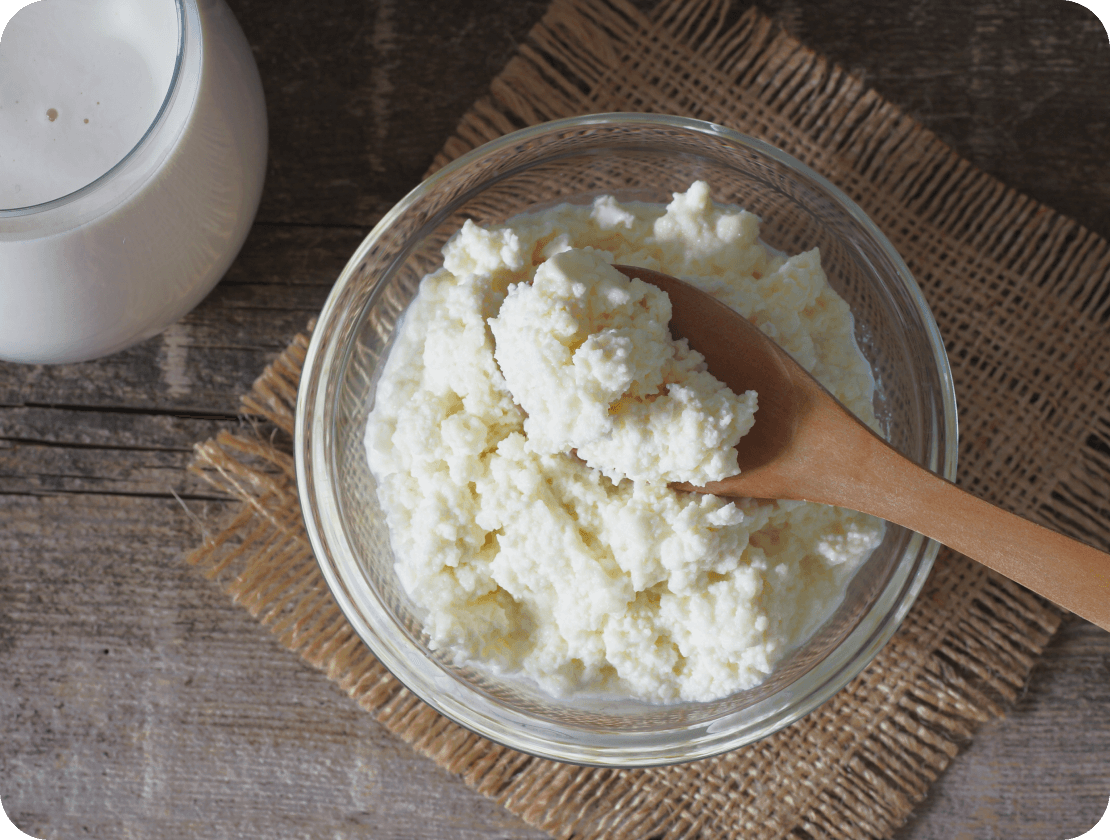

Ling-Zhi (Reishi) – the medicinal mushroom with a long tradition
In China, Ling Zhi has been used as a medicinal mushroom for centuries. In Japanese, it is called Reishi. Ling Zhi is known primarily for its adaptogenic effects. This means that the medicinal mushroom is said to help the body better cope with stress and thereby promote well-being. In Traditional Chinese Medicine (TCM), alternative medicine, and modern nutritional therapy, it is also valued for its immune-regulating and anti-inflammatory effects.¹⁸
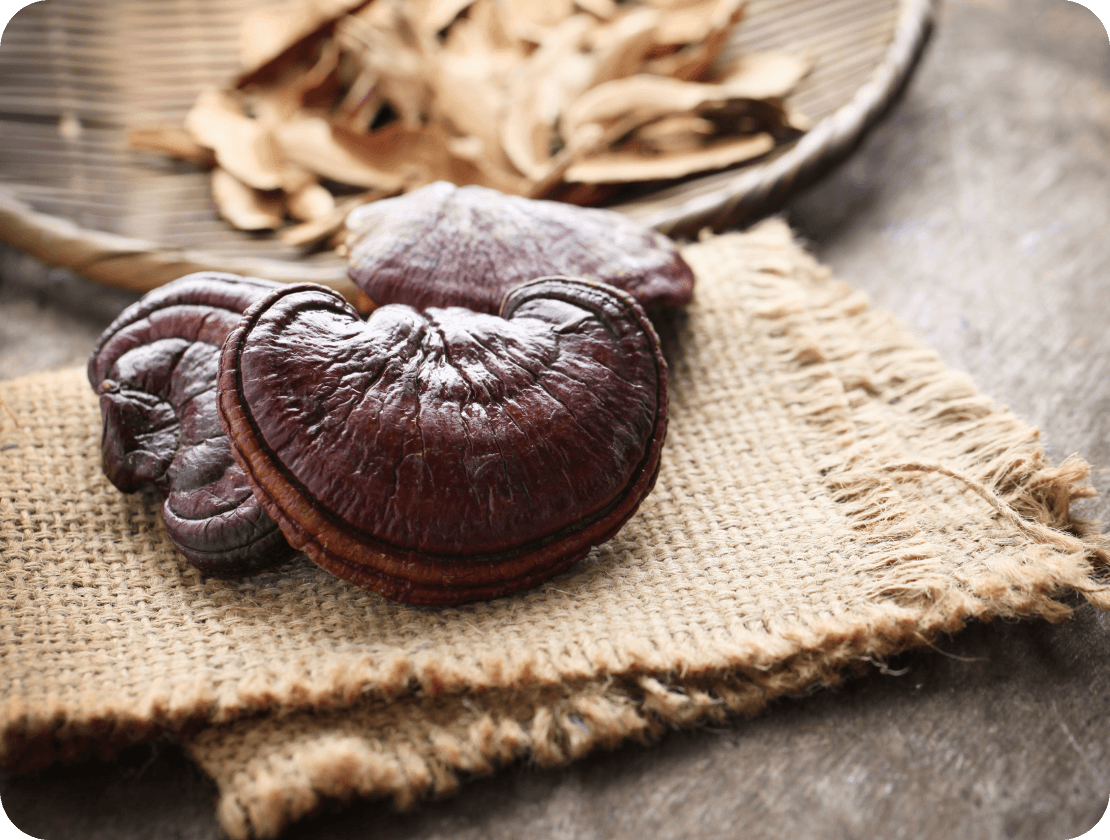

Cranberry – Protection for the bladder and mucous membranes
The cranberry (Vaccinium macrocarpon), better known as the lingonberry, is used in naturopathy to prevent or relieve the symptoms of urinary tract infections. Its active ingredients, known as proanthocyanidins, can prevent the bacteria Escherichia coli, which cause urinary tract infections, from adhering to the urethral wall.1⁹ The medicinal plant not only protects the mucous membrane, but is also rich in antioxidants. The anthocyanins and quercetin it contains are said to promote heart health.²⁰
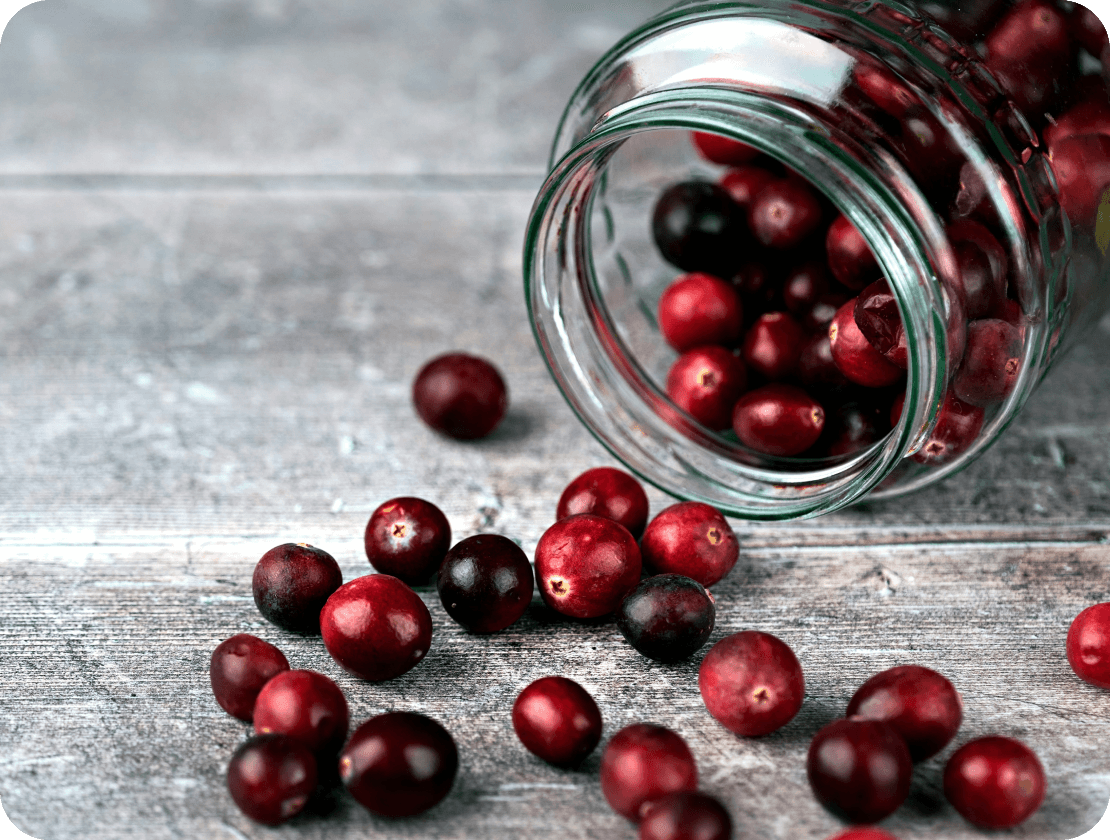

Garlic – a natural broad-spectrum remedy for your immune system
Garlic (Allium sativum) is a true "miracle bulb" that, as a natural antibiotic, can fight not only bacteria but also viruses and fungi.²¹ Its powerful antibacterial, antiviral, and immunomodulatory properties make garlic a popular aid in protecting against infections, not just in the fall. Furthermore, the aromatic cloves have lipid-lowering, blood pressure-lowering, and anticoagulant effects—effects that can be particularly useful in preventing vascular changes. The garlic plant can therefore also provide preventative support for the cardiovascular system.²²
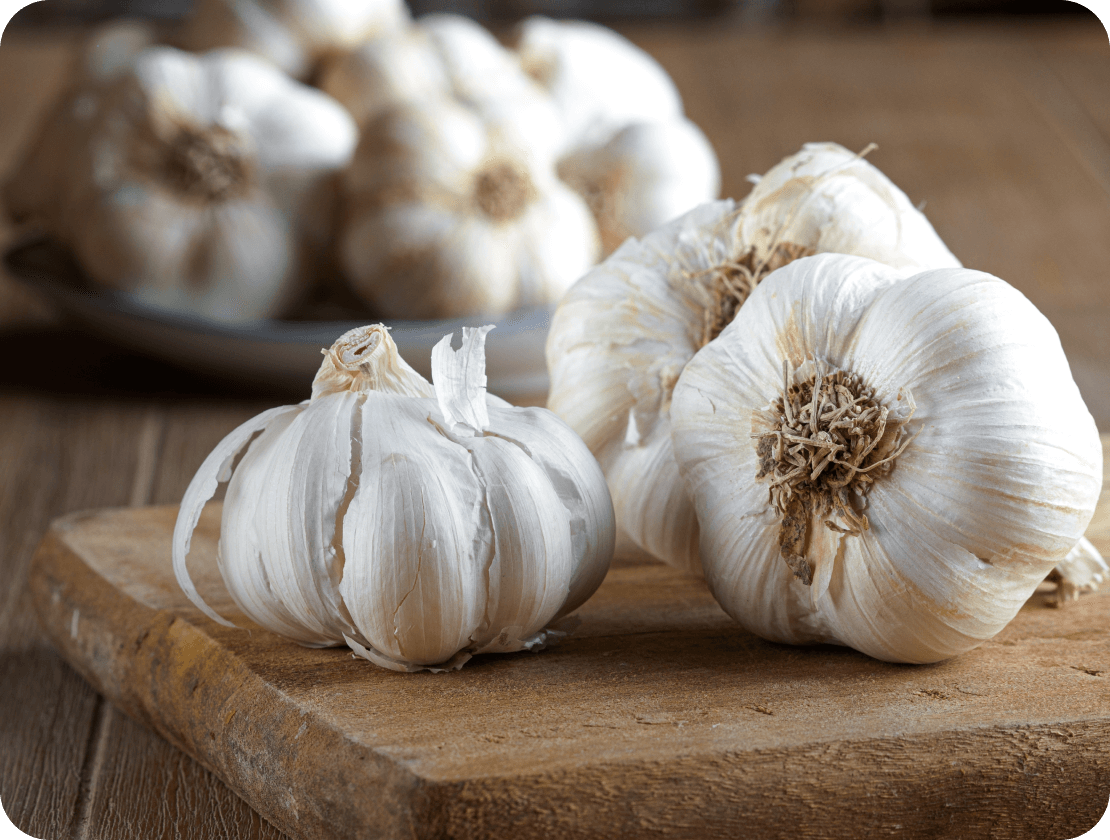

Don't like (raw) white garlic? Then opt for black garlic. This isn't a separate variety, but fermented white garlic. Black garlic is created when white garlic is fermented for up to 90 days. The advantage: Aside from a slightly sweet note, it's odorless, yet still contains its healthy active ingredients – a great alternative for all garlic haters.²³
Onions – underestimated immune helpers from the kitchen
Homemade cough syrup made from onion broth and honey is a proven home remedy for dry coughs.²⁴ Onions (Allium cepa) have anti-inflammatory properties, while the flavonoids they contain, such as quercetin, have antimicrobial effects—that is, they work against both bacteria and viruses.²⁵ But this inconspicuous tuber from the kitchen can do even more: Onions are rich in valuable sulfur compounds and antioxidants. Their sulfides can support the immune system and strengthen the body's defenses, meaning the power of onions can not only relieve illness but also have a prophylactic effect.²⁶
Propolis – the protective shield from the bee colony
Propolis is a resinous substance produced by bees to protect the hive from the invasion of bacteria, fungi, and other parasites. In folk and alternative medicine, bee glue is valued for its anti-inflammatory , antimicrobial, and wound-healing properties.²⁷
As an ointment, cream, or spray, propolis can be used to treat wounds, treat local inflammation, or protect the mucous membranes of the mouth and throat. Dietary supplements such as propolis capsules, powder, and solutions are also taken preventively by some people due to their hoped-for immune-stimulating effects. However, its use in preventing colds is based on empirical data, and conclusive proof of effectiveness is still pending.²⁸
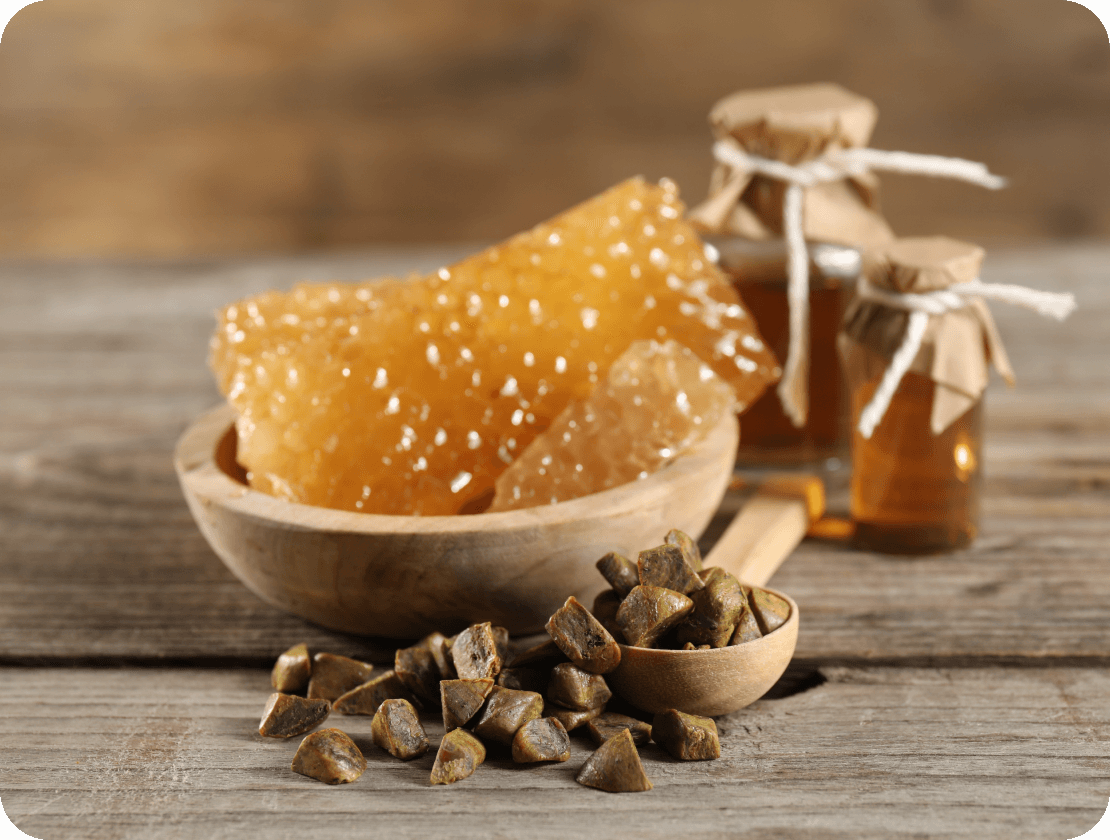

Bonus: Combinations often work better than individual substances
To prepare the immune system for the upcoming cold season in fall and winter, there are effective combination preparations. Different medicinal plants, such as garlic and onions, complement each other in their effects. Their organic sulfur compounds have different compositions, which means they complement each other functionally – both in their mode of action and their bioavailability.²⁹
Such synergistic effects have also been observed with the combination of thyme and propolis. Studies have shown that the immune modulation and antimicrobial effects of the combination are more powerful than those of either substance alone.³⁰ The phytonutrient complex Phytobiose utilizes precisely these principles. This all-natural combination preparation can be taken both acutely and preventively.
What studies say about herbal active ingredient combinations
Plant-based active ingredient complexes combined with probiotic cultures are increasingly the focus of scientific research. A study conducted by the Faculty of Medicine at Otto von Guericke University Magdeburg, led by Prof. Dr. Brigitte König, investigated the extent to which certain phytonutrient combinations exhibit antimicrobial properties.³¹ The study demonstrated an inhibitory effect on the growth of various bacterial strains.
In a follow-up study by the same research group, a growth-reducing effect on all tested Staphylococcus aureus strains was also observed.³¹ Such results suggest that certain plant substances could develop interesting synergistic effects when combined with probiotic microorganisms.
One advantage of these complex compositions is their versatility.
Unlike individual isolated substances, some herbal mixtures exhibit potential effects that can be both antimicrobial and immunomodulatory. Antiviral and antifungal effects are also discussed in the literature.³¹ Whether and to what extent such effects are clinically relevant is currently being investigated in further studies.
Conclusion: Use September before the cold wave arrives
Viruses, stress, lack of sleep, and nutrient deficiencies: Your immune system can be weakened by various factors. Now is the perfect time to optimally protect your body from the oncoming wave of colds. Various measures are helpful: Exercise, improve your fitness, and eat plenty of fresh fruit and vegetables. When it comes to preventing illness, rely on the pure power of plants and high-quality products that are easy to integrate into your daily routine and whose effectiveness is scientifically proven. You can find inspiration in our shop and in our newsletter . We hope that our tips will help you stay healthy this fall and avoid colds.
This article is based on carefully researched sources:
Sources & Bibliography
- rki.de/SharedDocs/FAQs/DE/ARE-Surveillance/ARE_gesamt.html
- rosenfluh.ch/media/arsmedici/2014/04/Darm_und_Immunsystem.pdf
- bihealth.org/de/aktuell/das-mikrobiom-und-die-fitness-des-immunsystems
- medizin1.uk-erlangen.de/forschung/arbeitsgruppen/ag-prof-c-becker/thema-darm/
- netdoktor.de/heilpflanzen/immunsystem/
- netdoktor.de/heilpflanzen/thymian/
- aerzteblatt.de/archiv/husten-und-bronchitis-thymianoel-wirkt-als-bronchikum-03ade22b-2b99-46cf-a10f-bb9b213b533a
- naturafoundation.de/Wissenszentrum/Monographien/35/thymus-vulgaris
- biomedpharmajournal.org/vol12no4/the-potential-gastrointestinal-health-benefits-of-thymus-vulgaris-essential-oil-a-review/
- netdoktor.de/heilpflanzen/nasturtium/
- uniklinik-freiburg.de/fileadmin/mediapool/08_institute/rechtsmedizin/pdf/Nasturtium_root.pdf
- nabu.de/tiere-und-pflanzen/pflanzen/pflanzenportraets/nutzpflanzen/15243.html
- geo.de/wissen/gesundheit/moringa---das-superfood-aus-indien-30174568.html
- pubmed.ncbi.nlm.nih.gov/26103628/
- ncbi.nlm.nih.gov/articles/PMC5708203/
- paracelsus.de/magazin/ausgabe/201603/im-fokus-moringa-oleifera
- onkopedia.com/de/onkopedia/guidelines/kolostrum-colostrum/@@guideline/html/index.html
- msdmanuals.com/de/heim/spezialthemen/nahrungserg%C3%A4nzungsmittel-und-vitaminen/reishi
- msdmanuals.com/en/home/special-topics/nutritional-supplements-and-vitamins/cranberry-cranberry
- netdoktor.de/heilpflanzen/cranberry/
- praktischarzt.ch/magazin/garlic/
- praktischarzt.ch/magazin/garlic/
- lifeline.de/ernaehrung-fitness/gesund-essen/schwarzer-knoblauch-id193450.html
- swr.de/leben/gesundheit/alles-wichtige-ueber-zwiebeln-gesundheit-heilmittel-hustensaft-100.html
- forum-ernaehrung.at/lebensstil/artikel/immunsystem-staerken-knoblauch-zwiebel-kohl
- fet-ev.eu/sulfide/
- netdoktor.de/medikamente/propolis/
- uniklinik-freiburg.de/fileadmin/mediapool/08_institute/rechtsmedizin/pdf/Erkaeltung1.pdf
- pmc.ncbi.nlm.nih.gov/articles/PMC10221607/
- translational-medicine.biomedcentral.com/articles/10.1186/s12967-024-05378-2
- Naturally combats infections. Antimicrobial efficacy of the phytonutrient complex Phytobiose. Expert information – excerpt from the special print edition of the journal OM & Ernährung, 2015, No. 153.
